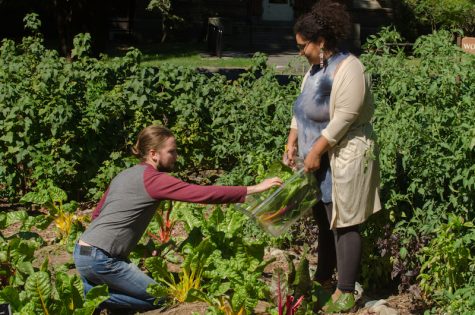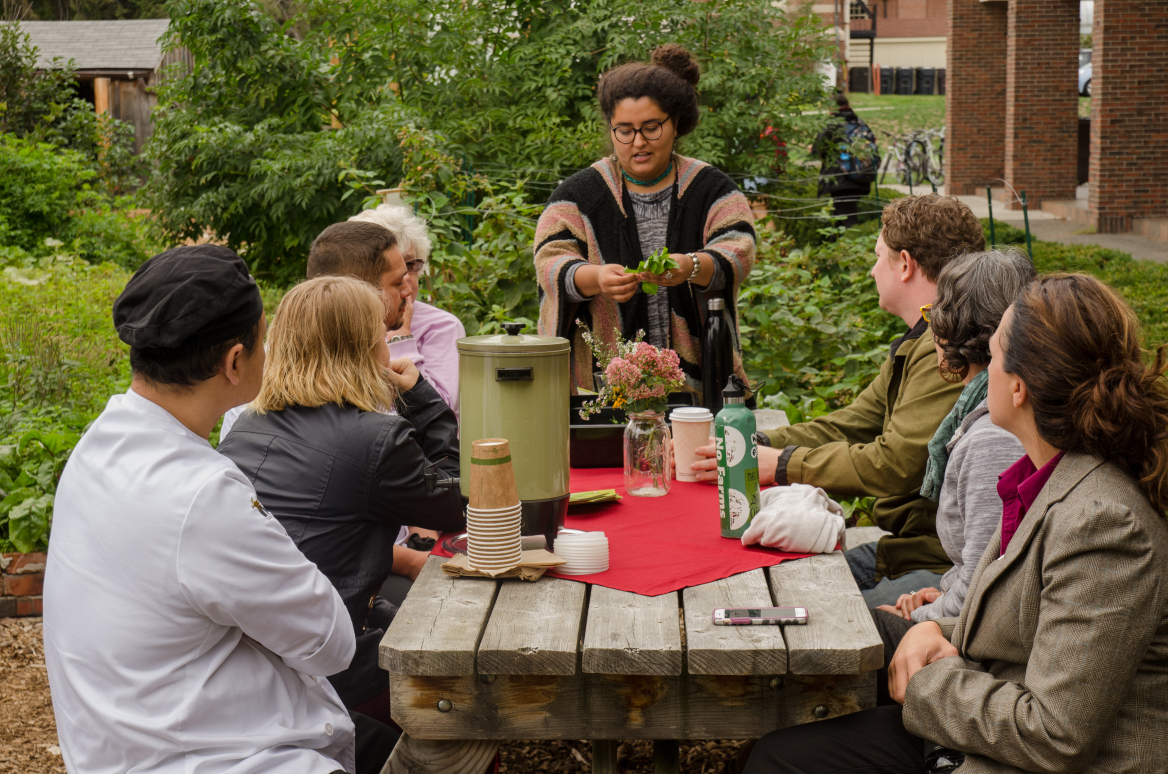Sustainable food and passion for farming reemerge on campus
Mass Aggie goes back to its roots
February 14, 2017
Before coming to the University of Massachusetts Amherst, Xochiquetzal Salazar, a 23-year-old graduate from eastern Massachusetts spent nine years working in restaurant kitchens before receiving her culinary degree from the Culinary Institute of America.
“The restaurant business was moving in the right direction, but not fast enough for me,” said Salazar.
She took a restaurant course focusing on farm-to-table and read the U.S. Department of Agriculture Farm Bill. “The ubiquitous problems with our current food system was eye-opening,” said Salazar.
Salazar is one of a growing number of students in the Stockbridge School of Agriculture. Over the past 10 years, the sustainable food and farming major has increased from five to 150 students and earned the U.S News and World Report ranking of 10th best in the world and 5th best in the United States as the best global agriculture university.
The growth has not stopped here.
“We’ve experienced an increase in student passion and creativity about sustainability,” said John Gerber, program coordinator for the sustainable food and farming major. “I don’t like to predict the future but we have seen a reemergence of a commitment to food and farming.”
Students come from all kinds of backgrounds, but what they all have in common is a passion for food and farming. Salazar and Megan Migliozzi, a junior sustainable food and farming major, are among the many “Stockies” invested in agricultural pursuits.
Originally a land grant agriculture school called Massachusetts Agricultural College, UMass Amherst has evolved into a research university over the past 50 years. The increased interest in food and farming expands on the university’s agricultural roots.
“UMass used to be an agricultural school and I think this is being talked about more now in terms of issues surrounding food waste and hunger,” Salazar said. “The social and political aspects are important to people, and this is getting more recognition in a revised way.”
Salazar noted the new twists about the campus climate. “Women are here and so are people of color,” Salazar said. “And permaculture now exists on campus.”
As a “Stockie,” Salazar was a leading member of the permaculture initiative and worked for the sustainability department of UMass dining. She has spent her first year out of college as the sustainability coordinator of campus gardens.

“Sustainability is important to me because it is a necessary measure to feed the world of the future in a way that will preserve the environmental integrity,” said Salazar. “It’s more than just a trend.”
Salazar plans to create interactive experiences in the gardens by adding intentional education spaces. She also plans to add a mushroom workshop.
“Having a place for students to experience mushroom culture is important…because we need courses to match this growing business,” said Gerber. “New England is a very progressive customer base that expects high-quality food.”
Megan Migliozzi appreciates the variety of courses in Stockbridge. A diabetic, she transferred to UMass from Clemson University because of its focus on organic and sustainable practices.
“I really wanted to learn a holistic, sustainable approach to farming, and that is exactly what I found at UMass,” said Migliozzi.
“A sustainable enterprise must be economically sound, environmentally safe and socially just,” said Gerber. These are all embedded in Stockbridge’s rich learning environment.
Migliozzi has found that her courses, such as food justice and policy, the well-being of farmers and farm finance not only address these perspectives but also provide her with hands-on farm field trips.
“This has helped me make some decisions about what type of farming I want to do,” said Migliozzi.
UMass Dining’s sustainability department, the permaculture initiative and the Student Farm have also fed Migliozzi’s passion.
After graduation, Migliozzi plans to volunteer with the World Wide Opportunities on Organic Farms and eventually start an organic farm that stimulates community education.
“I think it is growing as a movement, but there is still a lot of work to do. There are not huge sacrifices to living sustainably. It takes some work, effort and knowledge, but it is so rewarding,” said Migliozzi.
Email Julie at jshamgochian@umass.edu or follow her on Twitter @julie_sham.
